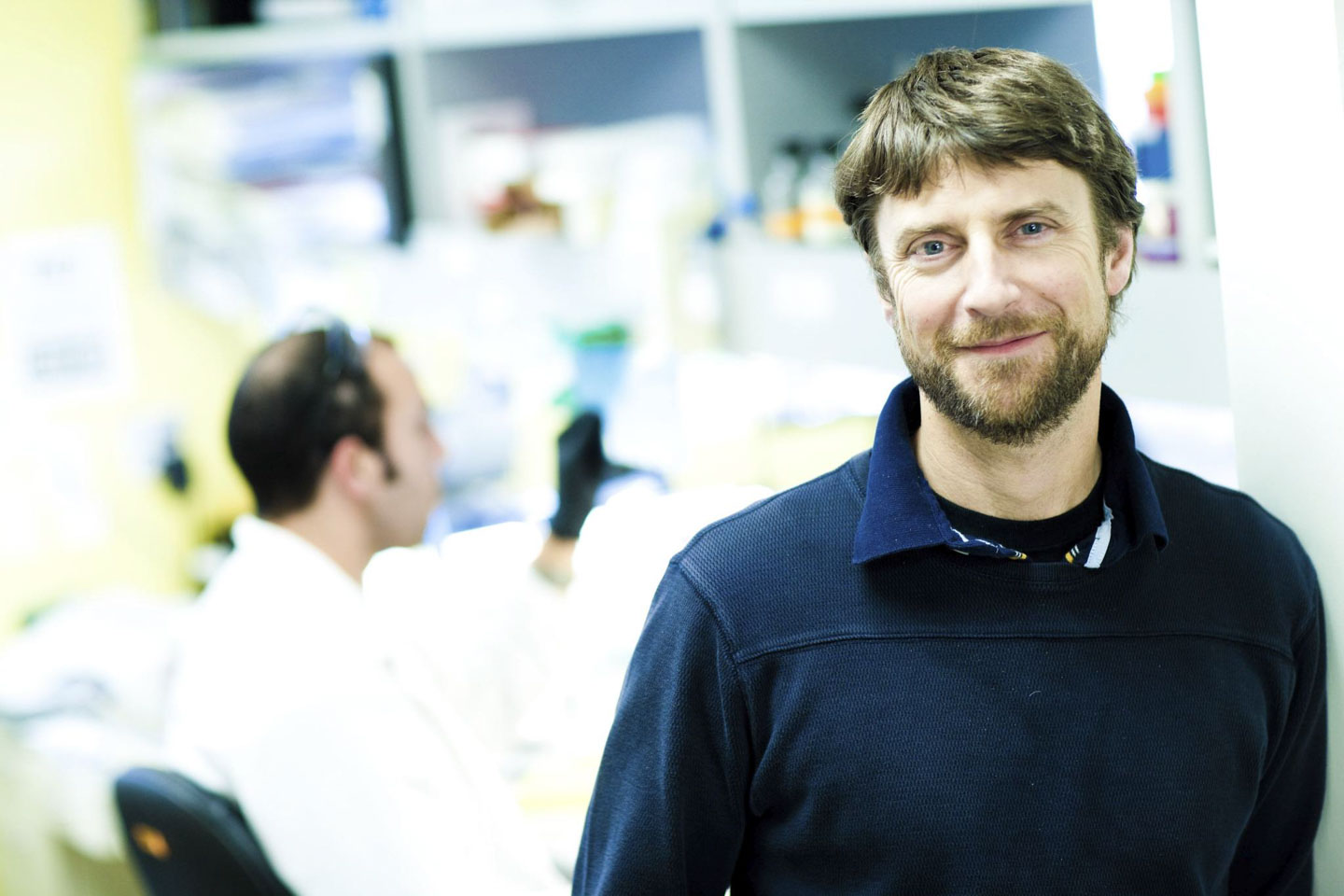Sanford Burnham Prebys Medical Discovery Institute (SBP) has received a $1M donation from The Epstein Family Foundation for scientists to study pancreatic and prostate cancer. The gift, contributed by SBP board member Dan Epstein and his wife Phyllis, will support the lab of Nicholas Cosford, PhD, associate director of Translational Research at the Institute’s NCI-designated Cancer Center.
“Nick Cosford is one of our leading scientists investigating new approaches to treat patients with pancreatic and prostate cancers,” said Perry Nisen, MD, PhD, chief executive officer of SBP. “This generous donation from The Epstein Family Foundation will help us realize our vision to translate fundamental research into clinically meaningful benefit for patients.”
Pancreatic cancer is one of the deadliest forms of cancer. There are no effective therapies and the five-year survival rate is only six percent. Prostate cancer is the second leading cause of cancer death in U.S. men. 180,000 men are diagnosed with prostate cancer every year in this country.
“I am pleased to be able to help advance research, especially in these two challenging types of cancer,” said Epstein, a long-time supporter of SBP who has been a member of the Institute’s board of trustees since 2011. “Nick Cosford is doing some exciting work in his lab and I look forward to hearing about discoveries that may improve the lives of patients diagnosed with these diseases.”
Cosford, who has spent more than 25 years assembling small molecules into disease-fighting chemical compounds, talked about his lab’s focus.
“Aggressive tumor cells, such as those found in pancreatic and advanced prostate cancer, are highly resistant to the normal mechanisms the body uses to eliminate abnormal cells. We are developing medicines that overcome this resistance by inhibiting the pathways tumor cells use to survive. By designing small molecules that act on apoptosis (programmed cell death) and autophagy (a cell survival mechanism), we hope to develop drugs that will destroy deadly tumor cells and improve patient outcomes,” Cosford said.
